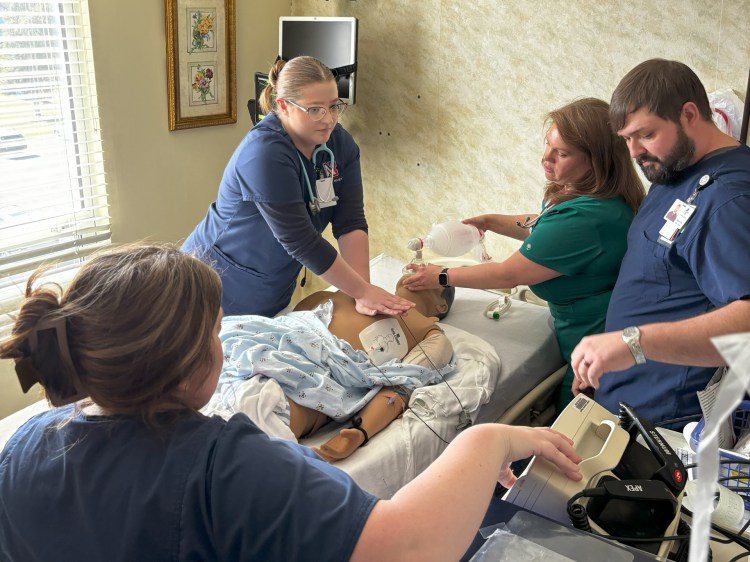Mastering Cardiac Arrest Response at Lakeland Community Hospital

On March 12, the UAB Mobile Simulation team collaborated with Lakeland Community Hospital in Haleyville, Ala., to conduct an immersive simulation focused on managing cardiac arrest.
This simulation employed Rapid Cycle Deliberate Practice (RCPD), a method that allows learners to pause and rewind scenarios to achieve perfect care through repetitive practice.
The training session concentrated on the first five critical steps of a code blue situation:
- Calling for help
- Assessing patient responsiveness
- Initiating chest compressions
- Preparing and delivering a shock
- Administering appropriate emergency medications
Participants engaged in deliberate, repetitive practice to enhance their skills and confidence in these vital areas. The hands-on approach helped learners improve their technique, knowledge and proficiency with defibrillators and chest compressions.
Attendees reported that the simulation was highly beneficial, particularly in learning how to effectively respond to a patient without a pulse. The emphasis on improving form and technique during compressions and the proficient use of defibrillators was highlighted as a key takeaway.
“Each individual walks away from the simulation more confident,” said Brittany Kelly, R.N., education/employee health nurse with Lakeland.
Kelly also gathered feedback from her staff, members of which praised the simulation methodology for its safe environment.
“I feel like I get a chance to learn without having the worry of getting it wrong,” a nurse from radiology reported.
“I always enjoy getting to participate in the simulations and practice things I may have forgotten, while also learning new things,” a med surg nurse added.
This collaborative effort between the UAB Mobile Simulation team and Lakeland Community Hospital marks a significant step in advancing the quality of emergency care, said Mercedees Willis, mobile simulation coordinator with UAB Clinical Simulation.
“By refining their response to cardiac arrest scenarios, health-care professionals are better prepared to provide life-saving interventions, ultimately enhancing patient outcomes,” she said.
Learn more about UAB Mobile Simulation here.




0 Comments